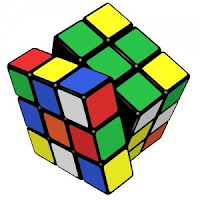The Four Stages of the Creative Process
- Preparation — the creative problem is investigated in all directions and in the process, related intellectual elements are referenced — out of which new ideas for a possible solution can be formulated.

In this stage, the ideas are arranged to form the best course of action to reach a point of resolution; which is also done by seeking patterns in solutions that may have worked in past experiences. That point of divining plausible solutions is called Incubation.
It is often better to solve a related problem that may inspire a solution for the former, which will occur in a way that seems to be brought forth by a sudden intuition.
3. Illumination — Once all intellectual elements gathered during the Preparation stage have been sifted through in Incubation, it is then they may align themselves as a new illuminating formation.
 It is that flash of insight that the conscious self cannot simply will, as the subliminal self can. This is also known as the “Eureka” moment — a spontaneous intuition that could arise out of participating in a seemingly unrelated task such as arbitrarily during one’s morning routine or while trying t
It is that flash of insight that the conscious self cannot simply will, as the subliminal self can. This is also known as the “Eureka” moment — a spontaneous intuition that could arise out of participating in a seemingly unrelated task such as arbitrarily during one’s morning routine or while trying t
If one ponders too deeply on one aspect of the problem, the desired solution has a lower chance of being attainable. It is through the active form of Incubation that the favourable Eureka moment of Illumination may lead to a successful resolution.
4. Verification — It is from all of these inspirations, which are the product of unconscious work, that the verification stage begins.
The proper calculations must be made during the second period of conscious work following the I

Comments
Post a Comment